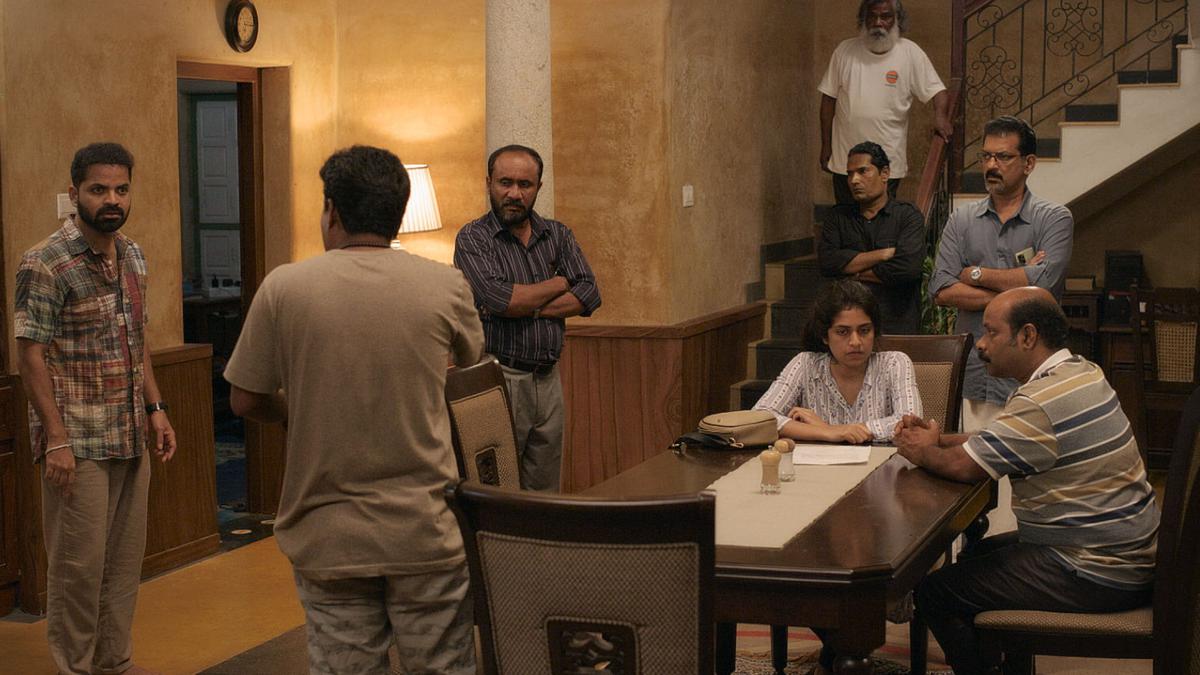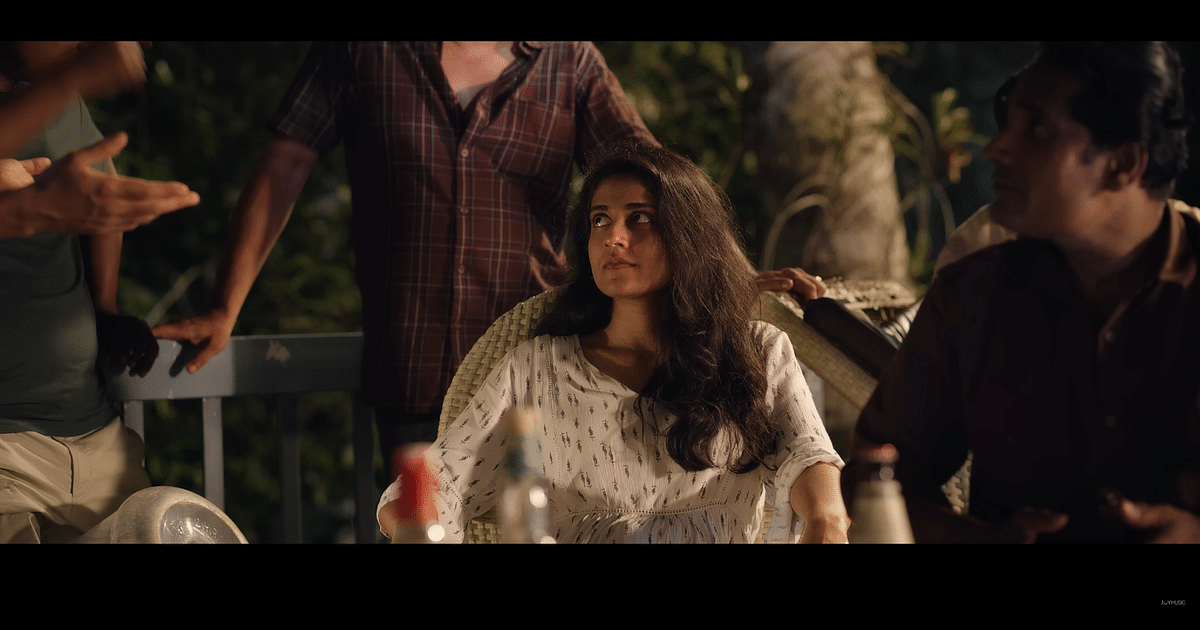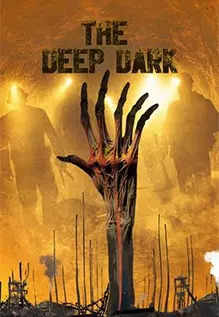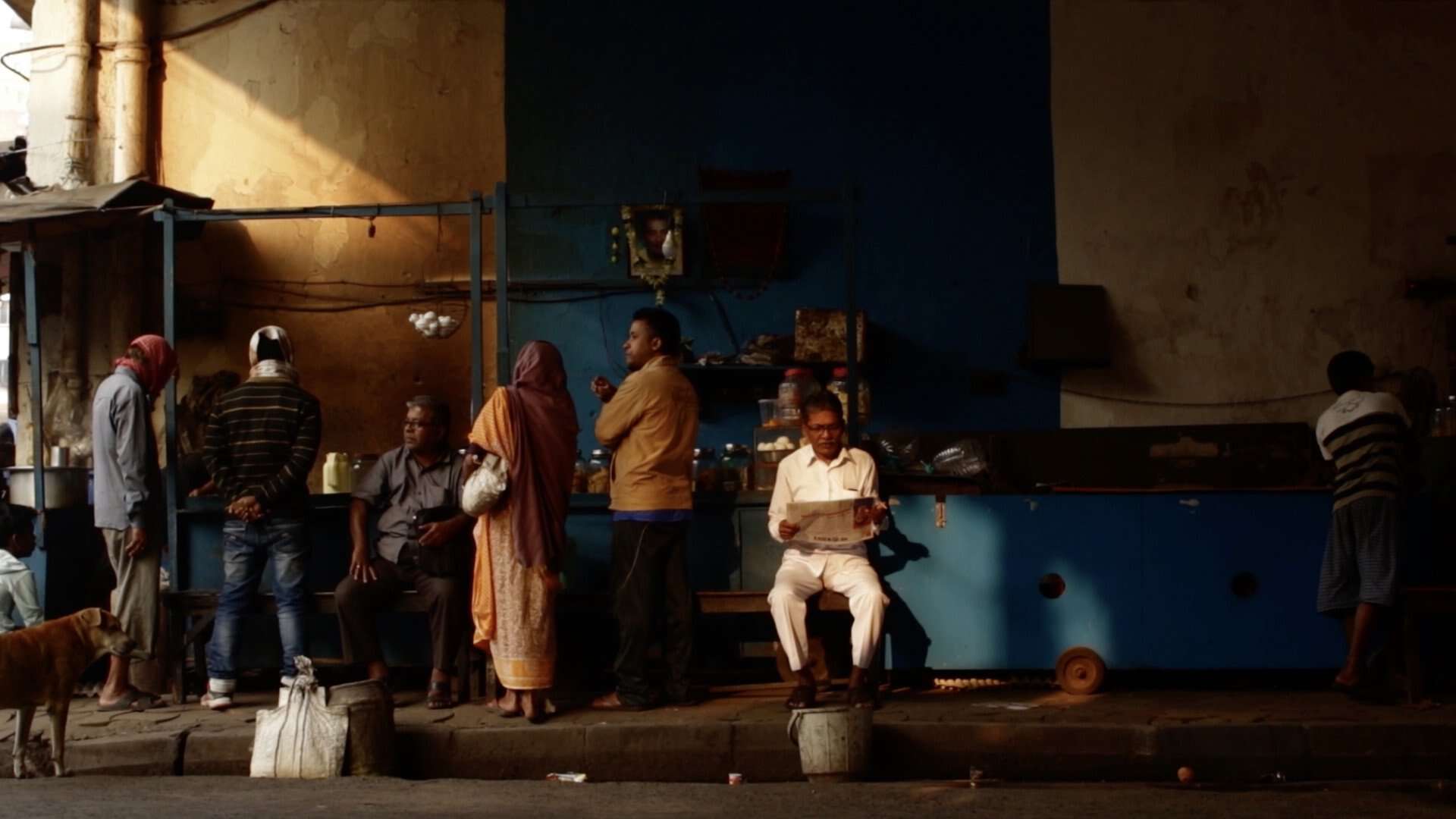Rooting for a character gives us a sense of comfort, but we are not especially aware of this until that rare movie comes along which does not provide us that comfort. Such movies constantly upset our calculations, and our understanding about particular characters; they end up pulling the rug from under our feet when we assume to be standing on stable ground.
In Anand Ekarshi’s debut feature Aattam, we do have a character to root for in Anjali (Zarin Shihab), the lone female member in a drama troupe filled with men. No, she is not in hostile territory, rather there are allies galore for her in that troupe, in which she literally grew up. None more so than Vinay (Vinay Forrt) with whom she is in a relationship. But, all is not well within the troupe, for there are bruised egos and some internal politics born out of it to contend with.
Within this group explodes a scandal that threatens its very existence and also shakes the alliances between group members. This is where Ekarshi’s script also pulls its little trick, constantly making us question our assessment of each of the characters, most of whom seem to be harmless beings struggling to stay afloat in an unequal world. The equations between the group shifts constantly, and words uttered a while ago attain new meaning in the light of new revelations.
Aatam
Director: Anand Ekarshi
Cast: Vinay Forrt, Zarin Shihab, Kalabhavan Shajohn
Duration: 140 minutes
Storyline: All is not well when a scandal explodes within a drama troupe, as the lone female member in the group contends with bruised egos and internal politics
Most of them are working-class people having a day job to run their family, for passion for the stage cannot fill their stomachs or run their families. Anjali is an architect, Vinay is a small-time chef, one person works in a gas agency, and another as a plumber or electrician. Only a former newspaper editor seems to be reasonably well off. Their economic background comes into play at a crucial point in the story, when their resolve to do the right thing is tested.
Although we sympathise at times with the few — who have struggled all their lives — wavering at the prospect of a life-changing deal, the way the film masterfully peels the thin veneer of progressiveness and trustworthiness that the men carry as a mask, is something to behold. It also shows how even the friendliest of spaces can turn hostile to women who dare to stand up for themselves. Suddenly, their past conduct, their attire and even their passing remarks will be called into question, being used as a weapon to delegitimise their valid concerns.
The film is what could be branded dialogue-heavy, but when the dialogues fit right in and have an ambiguous quality at times, such heaviness is always welcome. One wouldn’t brand 12 Angry Men or The Man from Earth as dialogue-heavy; the dialogues are what makes those movies special.
At some points, it takes the form of a procedural drama, but at all times the intent seems to be to slowly unravel the complexities of these characters and the many factors which push and pull them in various directions. Finding an answer to the who or why becomes immaterial after a point, a fact which the movie underlines in its well-conceived climax. With Aattam, which looks at male behaviour through a harshly critical lens, Anand Ekarshi makes an assured debut.
Aattam won the Grand Jury Award at the Indian Film Festival of Los Angeles., and is set to get its Asian premiere at the Jio MAMI Mumbai Film Festival next week




























